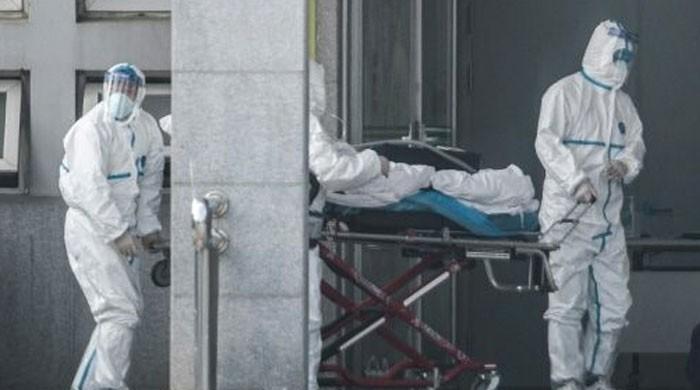US confirms first suspected China virus case hospitalised over precaution

WASHINGTON/BEIJING: The United States announced its first case of a new virus that has claimed six lives in China and sickened hundreds, joining countries around the world in ramping up measures to block its spread.
The man, a US resident in his 30s who lives near Seattle, is in good condition, according to federal and state officials, and approached authorities himself after reading about the SARS-like infection in news reports.
He is "currently hospitalized out of an abundance of precaution, and for short term monitoring, not because there was severe illness," said Chris Spitters, a Washington state health official.
"This is an evolving situation and again, we do expect additional patients in the United States and globally," added Nancy Messonier, a senior official at the Centers for Disease Control and Prevention (CDC). She stressed that the overall risk to Americans remained low.
The man is originally from Wuhan and returned to the US on January 15, two days before health officials began screening passengers at major airports arriving from the central Chinese city, which is at the heart of the outbreak. The efforts are to be extended now to a total of five US airports.
He lives alone and will be monitored in isolation for at least 48 more hours.
The development came as countries intensified their efforts to stop the spread of the pathogen -- known by its technical name 2019 Novel Coronavirus -- as the number of cases surpassed 300, raising concerns in the middle of a major Chinese holiday travel rush.
Fears of a bigger outbreak rose after a prominent expert from China´s National Health Commission confirmed late Monday that the virus can be passed between people.
That conclusion is shared by the CDC, which said "person-to-person spread is occurring, although it´s unclear how easily the virus spreads between people."
The World Health Organization (WHO) will hold an emergency meeting Wednesday to determine whether to declare a rare global public health emergency over the disease, which has also been detected in Thailand, Japan and South Korea and Taiwan.
Many experts believe the US case, while not surprising given the frequency of international flights, makes such a declaration all the more likely.
Mark Woolhouse, a professor of infectious disease epidemiology at the University of Edinburgh, said more evidence was needed to determine if it spreads through the air or via close human-to-human contact.
"It is important to stress that, though similar, it is not as severe an infection as its predecessor, the SARS coronavirus," he added.
- Holiday rush -
Early on, many patients had some link to a Wuhan seafood market where live animals were sold, suggesting an animal-to-person spread.
Hundreds of millions of people are criss-crossing China this week in packed buses, trains and planes to celebrate the Lunar New Year with relatives.
More than 80 new cases have been confirmed, bringing the total number of people hit by the virus in China to 315, with the vast majority in Hubei, the province where Wuhan lies, according to officials.
But cases have also been confirmed around the country, including Beijing and Shanghai.
The first case on the self-ruled island of Taiwan was also confirmed Tuesday, with a woman taken to hospital on arrival at the airport from Wuhan.
Wuhan mayor Zhou Xianwang told state broadcaster CCTV Tuesday that the death toll had risen from four to six.
The coronavirus has caused alarm because of its genetic similarities to Severe Acute Respiratory Syndrome (SARS), which killed nearly 650 people across mainland China and Hong Kong in 2002-2003.
- Fever checks -
At four airports in Thailand, authorities introduced mandatory thermal scans of passengers arriving from high-risk areas of China.
In Hong Kong, authorities said they were on "extreme high alert," with passengers from Wuhan required to fill out health declarations and face possible jail time if they do not declare symptoms.
Enhanced screening measures have also been set up at airports in Australia, Bangladesh, Nepal, Singapore and Russia, Malaysia and Vietnam.
A man showing symptoms of the disease who had travelled to Wuhan has been put in isolation in Australia as health officials await test results, authorities said Tuesday.
In China, the government announced it was classifying the outbreak in the same category as SARS, meaning compulsory isolation for those diagnosed with the disease and the potential to implement quarantine measures on travel.
In Wuhan, authorities banned tour groups and police were conducting spot checks for animals in vehicles leaving and entering the city, state media said.
Passengers were being screened for fever at the airport, railway stations and bus terminals.
Doctors at the University of Hong Kong released a study on Tuesday estimating that there have been 1,343 cases of the new virus in Wuhan.
The WHO has only called a global public health emergency a handful of times, including during the H1N1 -- or swine flu -- pandemic of 2009 and the Ebola epidemic that devastated parts of West Africa from 2014 to 2016.


Post a Comment